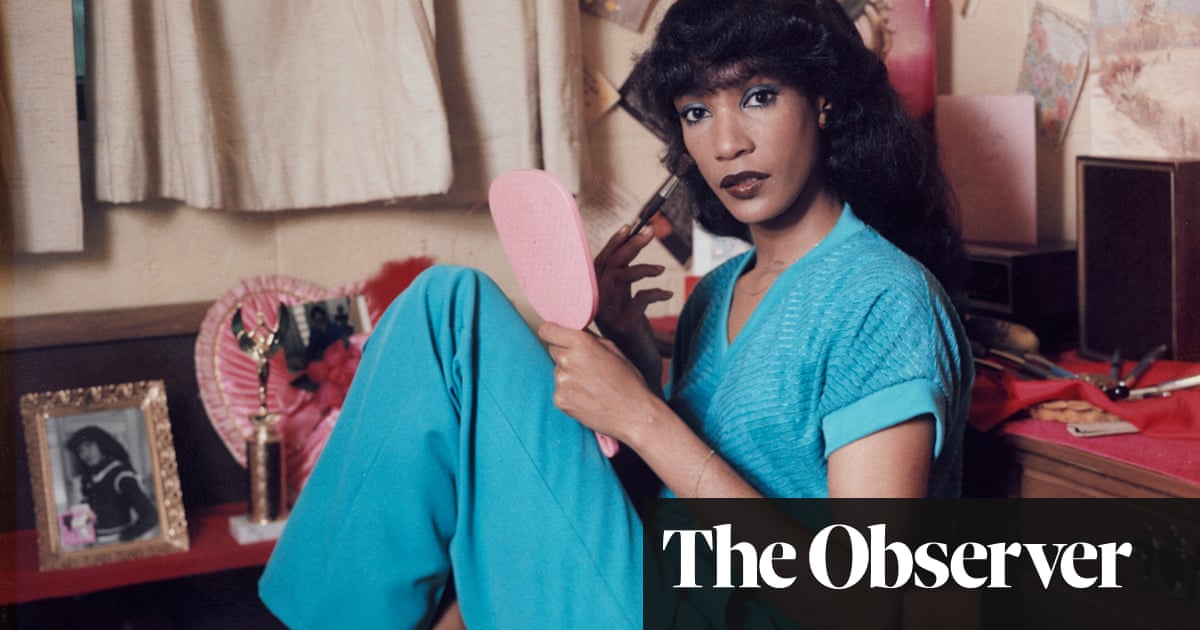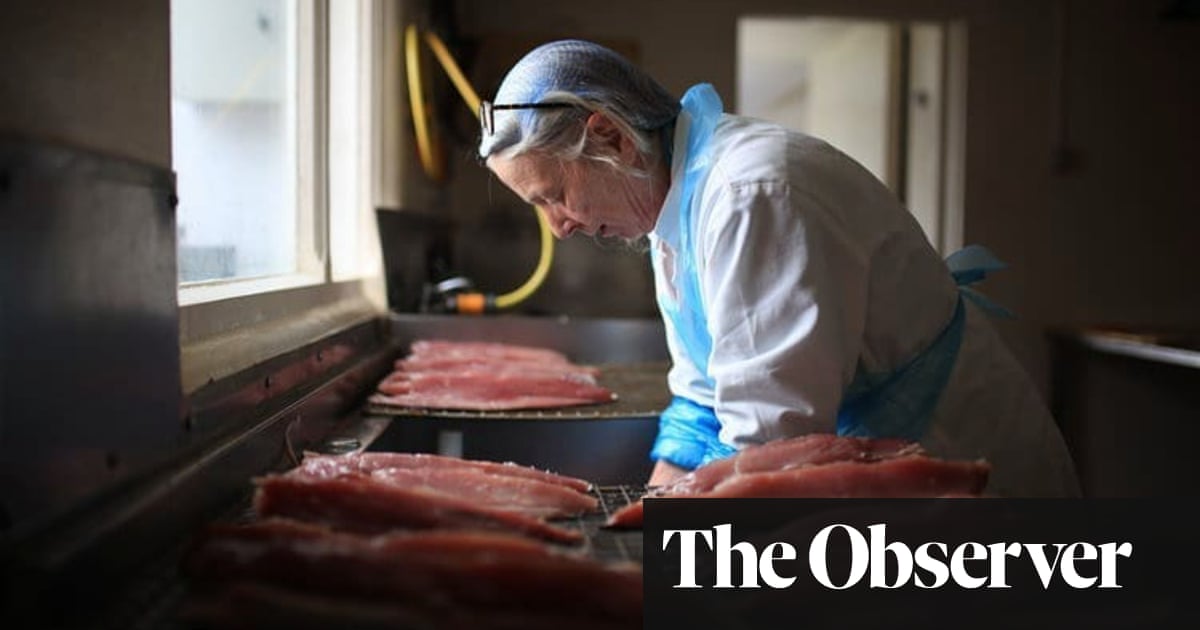In 1970, aged 35, Jack Lueders-Booth left a well-paid management job at an insurance company in his native Boston, Massachusetts, to pursue his interest in photography. âUntil then, I was a serious hobbyist,â he tells me over the phone from the city where he still lives, âbut my interest had deepened to the point where it was more and more difficult to do my day job. I needed something more stimulating. Photography was my real vocation.â
Soon afterwards he landed a job as an administrator for the fledgling photography department at Harvard University, where later he also enrolled as a student. For his masterâs thesis, he submitted a proposal that would alter the course of his life. âI told them I wanted to teach photography in places of confinement such as prisons and mental hospitals,â he elaborates, âI thought it would be beneficial for the inmates in all sorts of ways, not least because they could share their experience with their families through the images they made.â
In 1977, he began teaching photography in Massachusetts Correctional Institution Framingham, a womenâs prison that had been founded in 1872 to house those convicted of the crime of âbegettingâ â giving birth out of wedlock. Over the ensuing decades, under various liberal governors, MCI Framingham became known for its progressive initiatives: allowing prisoners to wear their own clothes, employing female guards and, for a short period from the mid-1970s, allowing a small intake of male prisoners who mixed freely with the female inmates.
Over the seven years that he taught photography there, Lueders-Booth transformed an unoccupied wing of the prison, building dark rooms in unused 19th-century cells and installing sinks and enlargers. There, he taught his eager charges how to make photograms (camera-less images), construct cardboard pinhole cameras and make formally accomplished portraits of their fellow prisoners. His reputation as a gifted and trusted teacher was such that he was allowed to roam freely with his 35mm Leica, taking âtens of thousandsâ of black-and-white photographs of the inmates. âIn all sorts of ways, it was a different, more liberal time,â he says wistfully.
The 32 images that comprise his new photo-book, Women Prisoner Polaroids, have been culled from about 200 colour portraits he also made there in 1980, when he became the recipient of the first of two generous Polaroid fellowships that included a donation of 12 state-of-the-art 4×5-inch view cameras and an unlimited supply of Polacolour film.
The results are striking in their relaxed intimacy and ordinary domesticity. As Lueders-Booth points out, the cells often âlook more like college dorms or apartmentsâ. Barred windows have been artfully concealed by curtains or decorative blinds, steel doors covered by wood-veneer panelling and the interiors often feature bookshelves, armchairs and chests of drawers topped with family snapshots, ornaments and even hi-fi record decks and speakers. Only the drab, peeling painted brickwork of the corridors and communal rooms fracture the illusion of home.
Over the years he worked there, Lueders-Booth came to know and respect the incarcerated women, many of whom, he says, brought âan incredible openness and curiosityâ to the portrait sessions. âA successful portrait is an exchange of trust that requires both parties to be totally present and engaged,â he says. âWhen I came to choose the images for the book, it was not just about how formally good they were, but that they somehow told a story about the person and the place.â His role, he says, âwas to be a truthful witnessâ and, as such, he often detected âa sadness that many of the women carried, even though they would bring a brave face to the cameraâ.
The book also includes a short selection of anonymous oral testimonies Lueders-Booth tape-recorded during his time at Framingham. One expectant mother explains how her baby will be taken into foster care soon after she gives birth: âI cannot see myself, after five days, giving my new baby up to anyone. Theyâve got their nerve. But Iâm not supposed to have any feelings about this.â Another inmate speaks frankly and without remorse about the moment when she fatally stabbed an abusive man with a pocketknife. âI told the judge, âIf I have to do it again, Iâll do it againâ¦â I know Iâm in jail, but, no sir, no sir. I do not feel sorry for defending my body âcause Iâm a woman and I have had it. I have had it.â
These visceral and defiant first-hand accounts evince an anger that is in stark contrast to the stillness and calm of the portraits, I suggest. âYes,â he says. âBut what you have to understand is that, for many of the women, this may have been the first and only time they have had a chance to express their anger at the injustice of their lives.â
The book concludes with a long freeform poem written by an inmate, Tina Williams, in 1980, when she had served nine years in Framingham for âturning tricks.â Titled I Love My Sisters, Sisters Love Thy Selves, it articulates a hard-earned wisdom that, ironically, was only achieved through a time of deep reflection in the relatively calm confines of Framingham prison. There, she and women like her were free from brutally controlling male partners or parasitic pimps, and what she memorably calls âthe knife of lifeâs coldnessâ.
Williams was one of a few women with whom Lueders-Booth formed a lasting friendship. âShe died just a few weeks ago,â he says quietly, before describing her poem as âa cautionary tale that speaks of the damaged lives that many of these women hadâ. In his time there, he encountered several prisoners who, having served their time and been released, would end up back inside a few months later. âThey came back looking battered and drained,â he says. âI realised that, for them, prison was a better life. A place where there were no pimps, no coercion, no violence.â
These humble Polaroid portraits speak of another America that seems impossibly distant, while the anonymous faces that stare back at us across the decades seem both present in the moment and out of reach. âA photograph is made in one-twetenty-fifth of a second,â says Lueders-Booth. âIt cannot come close to representing the totality of a life, but, through a kind of rapt attentiveness, it can reflect a moment very deeply. Maybe that is enough.â
One prisonerâs testimony: âDonât forget, ladies, donât give your back to nobodyâ
Ladies and gentlemen, the reason Iâm doing five to 10 yearsâ hard time is for a crime that I committed. I took a gentlemanâs life before he could take mine. The man was pushing me. I told him to stop pushing me. He kept on pushing and calling me all kinds of names. âI told you to get out of here. This is my territory. Now get the hell out or else.â I said to the gentleman, âMan, you donât know me. You donât even know who youâre pushing. You donât know who youâre talking to. Get your hands off, man.â The guy said, âWhy should I, this is my territory, you donât scare me.â I said to him, âIâm telling you, get your hands off, stop pushing me, youâre hurting me.â He just kept on pushing me âtil Iâm against a car, and the carâs the only reason I was prevented from falling down, and busting or breaking my neck.
I just got all worked up, mad. I remember I had my husbandâs pocketknife. I had it in my pocket. I was wearing dungarees, I had hair rollers. T-shirt, and I stuck my hand in my pocket and showed the knife to the man. The man was much taller than me, Iâm only 4ft 10in or 4ft 9in. But I raise my hand up high so the man could see I had a knife. He said he didnât give a damn, heâs not afraid of the knife or me. And he pushed me harder again.
Then I saw that he went to make a movement with his right hand to his right pocket. And thatâs when I switched my blade open and before he was able to get his hand out of his pocket, I just stabbed him right in his heart. I know itâs his heart because my second husband taught me how to defend myself before he went to jail. He said, âUgh, you cut me, ugh, look, blood, you cut me.â And I said to him, âIf you donât get away from me, Iâll cut your head off your neck. Now, you get the hell out of here, punk!â And he started walking, but he wasnât walking like a natural person walks. He was walking like he was drunk. Then I see him when he got to the corner, and he fell on his face. I was watching because every time something happens to me, it happens to me in the back. People hit me from behind. They donât cut me in the face. They hurt me with bats, knives, or a with a bottle to my head, from behind my back.
So, donât forget ladies, donât give your back to nobody, please. Take this message from an old-timer, cause Iâm tired of going to jail. And when I go outside, I will try to prevent and stay out of trouble because I have a terrible temper. But, uh-uh, nobody will ever put a hand on me again. Nobody.



